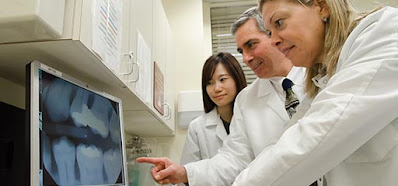When it comes to treating certain conditions like addictions, anxiety, stress, or depression, finding the right treatment can be hard. There are a lot of options out there.
One option people might overlook is holistic therapy. This type of therapy can be effective, especially if other types of treatment aren't working well.
But what exactly is holistic therapy? In this post, we'll go over what holistic therapy is and what benefits it offers.
What Is Holistic Therapy?
Holistic therapy is a type of treatment that focuses on the whole person, rather than just their symptoms. It considers all aspects of a person's life, including their physical, mental, emotional, and spiritual health.
Holistic therapy is meant to promote relaxation and mindfulness. Holistic therapists will often incorporate other forms of psychotherapy, such as cognitive-behavioral therapy, in their treatments.
How Can It Benefit You?
There are many ways that holistic therapy can benefit you. Here are some of the most common benefits.
Help you to regulate your emotions
When it comes to regulating your emotions, holistic therapy can be extremely effective. It can help you to understand why you feel the way you do and how to manage your emotions better.
Connect with your spirituality
If you're looking to connect with your spirituality, holistic therapy can help. It can provide a space for you to explore your spiritual beliefs and practices. You will be encouraged to learn about yourself and your beliefs.
Improve your communication skills
Holistic therapy can help you to improve your communication skills. This is because it helps you to understand yourself and others better. You might be taught how to engage in active listening and read nonverbal communication.
Reduce stress and anxiety
One of the main benefits of holistic therapy is that it can help to reduce stress and anxiety. It can help you to learn how to manage your stress levels more effectively. Some techniques you might learn are deep breathing and meditation. You might also be encouraged to engage in aromatherapy or massages for stress relief.
Develop a stronger sense of self-awareness
Holistic therapy can help you to develop a stronger sense of self-awareness. This is because it encourages you to look at all aspects of your life, including the good and the bad. As you learn more about yourself, you'll be able to make better decisions for your future.
Improve your stress management skills
When it comes to managing stress, holistic therapy can be a great way to learn new skills. You will learn how to identify your stress triggers and how to deal with them in a healthy way. This can help you to feel more in control of your life.
Improve your sleep quality
Poor sleep quality can be caused by stress and anxiety. Holistic therapy can help to improve your sleep quality by teaching you how to relax and manage your stress levels better.
Reduce your reliance on medication
If you're relying on medication to manage your condition, holistic therapy might help reduce your reliance on them. This is because it can help to improve your overall well-being, which might make you feel better and require less medication.
Get into better physical condition
Holistic therapy can also improve your physical health. You will be encouraged to examine how you treat your body and what can be done to improve your physical condition. You might be recommended to take up yoga or learn proper nutrition.
As you can see, holistic therapy can offer a range of benefits for you. While it may not be the end-all cure to your problems, it can help you out a lot.
If you're looking for a different type of treatment, or if other treatments haven't been working well, holistic therapy might be a good option. Talk to your health care provider to see if it's the right choice for you.
Author bio:
Indranil Kar
INDRANIL is Director of Marketing at BacklinksMedia. With 5+ years of experience in public relations and marketing, he loves talking about content creation, SEO and his dog.





